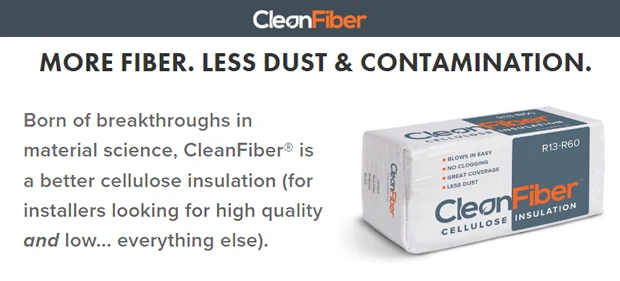
CleanFiber is transforming the insulation industry by recycling cardboard waste into high-quality, sustainable insulation material. With $28 million in Series B funding, the company is expanding its operations to meet increasing demand for eco-friendly building materials. This innovation not only addresses supply chain challenges but also supports the shift towards sustainable construction practices.
CleanFiber’s Role in Redefining Insulation Standards
CleanFiber is a burgeoning company in the insulation industry, focusing on converting cardboard waste into high-quality, sustainable insulation. This initiative not only promotes recycling but also addresses the environmental issues associated with traditional insulation materials. The recent injection of $28 million in Series B funding underscores the market’s confidence in CleanFiber’s innovative approach and its potential to redefine insulation standards.
The Problem with Traditional Insulation Materials
Traditional insulation options often involve materials that pose environmental risks and sustainability concerns. Fiberglass, a common insulating material, requires significant energy for production and involves hazardous components. Cellulose insulation, made from recycled newsprint, is considered more eco-friendly but faces supply shortages due to the decline of the newspaper industry. These challenges highlight the need for more sustainable and readily available insulation materials.
CleanFiber’s Innovative Solution
CleanFiber leverages an advanced process to transform discarded cardboard—a material in abundant supply thanks to the rise of e-commerce—into cellulose insulation. This process not only recycles waste but also produces insulation that competes favorably with traditional materials in terms of thermal performance and fire resistance. CleanFiber’s product is distinguished by its low dust content and minimal environmental impact, aligning with the growing demand for green building materials.
The Impact of the Series B Funding
The $28 million raised in the latest funding round is earmarked for scaling up CleanFiber’s production capabilities. With an initial facility in Buffalo, New York, the company plans to expand its operations nationally. This expansion is anticipated to significantly increase the output, aiming to meet the insulation needs of tens of thousands more homes annually. The investment also signals strong investor confidence in CleanFiber’s technology and its market potential within the expansive $12.5 billion insulation industry.
Recommended: Open Invention Network, Microsoft And The Linux Foundation, Mark Five Years Of Impeding Patent Trolls’ Patents
Market Response and Industry Impact
The introduction of CleanFiber into the insulation market has been met with positive feedback from both industry professionals and environmental advocates. The company’s ability to meet traditional insulation standards while reducing environmental footprints provides it a competitive edge. In the broader context, CleanFiber is carving out a niche that could potentially disrupt the dynamics within the $12.5 billion insulation industry, offering a greener alternative to both new construction and retrofit applications.
Challenges and Opportunities
Despite its innovative approach and recent capital infusion, CleanFiber faces several challenges, including the scalability of its production process and the integration of its products into existing supply chains dominated by long-established companies. However, the opportunities outweigh these challenges. There is a growing trend towards sustainable building practices and materials, driven by both regulatory changes and consumer preference. CleanFiber is well-positioned to capitalize on this shift, provided it can navigate the complexities of market penetration and production scaling.
Looking Forward: What’s Next for CleanFiber?
As CleanFiber looks to the future, its plans include not only increasing production capacity but also continuing to enhance its product’s performance and environmental benefits. Potential developments could involve refining the process to further reduce costs, exploring other uses of recycled cardboard in building materials, and expanding into international markets where regulations favor environmentally friendly products.
Final Thoughts: Pioneering a Sustainable Future in Building Materials
CleanFiber’s journey from a startup to a significant player in the insulation industry illustrates the potential for innovative recycling technologies to make substantial impacts. By turning cardboard waste into high-quality insulation, CleanFiber is not only providing a solution to a supply chain problem but is also contributing to a more sustainable construction industry. This case serves as a prime example of how environmental challenges can be transformed into business opportunities that benefit both the economy and the planet.
Please email us your feedback and news tips at hello(at)techcompanynews.com

